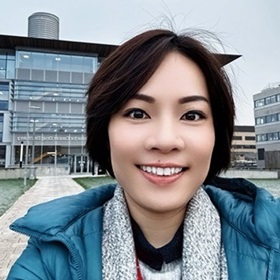
Biography and research overview
Dr Ling Li obtained her BSc from the National University of Singapore and her PhD from King’s College, London. Her formal scientific training began at the British Heart Foundation Centre of Research Excellence and the Pharmaceutical Science Division in King’s College London with a postgraduate scholarship under the Integrative Pharmacology scheme. Her PhD training focussed primarily on the roles of endogenously produced gaseous signalling molecules in cardiovascular and inflammatory diseases. She was awarded the Tadion Rideal Prize for Molecular Science for her PhD research.
After PhD, she moved to Professor Guido Franzoso’s lab in the Centre for Cell Signalling and Inflammation, Imperial College London where she first became interested in the contribution of inflammation to the field of oncology by studying the development of inflammation-associated cancer in preclinical models.
Thereafter, she returned to Singapore to join the laboratory of Professor Sir David Lane at A*STAR. Here she worked on the characterization of new models for the study of promoter-specific p53 transcriptional activity, as well as the evaluation of mutant p53 behaviour. She also established an independent research project to investigate the role of p53 and its interaction with c-Myc in modulating macrophage functional polarization and obtained a multidisciplinary A*STAR Biomedical Research Council and Science & Engineering Research Council Joint Career Development Award for her efforts.
After a number of years in academia, she joined Early Discovery Pharmacology in MSD as a founding member of the team focusing initially on next generation model evaluation and implementation to assess immunotoxicity of therapeutic antibodies. She has spent the last 8 years in various positions in Early Discovery Pharmacology/Quantitative Biosciences in MSD Singapore ending up as a Principal Scientist and Team Lead of the Cellular and Translational Bioscience group.
Dr Li has worked with multiple modalities including antibodies, peptides and small molecules and gained experience in many aspects of drug discovery, project leadership and matrix management within cross-functional teams. More recently, she has been actively involved in the establishment of a patient-derived organoid and Cancer Associated Fibroblasts biobank and overseeing translational tumour model development effort.
She joined ICR in October 2023 as Team Leader for the Tumour Microenvironment and Pharmacology team.
Research overview
At the ICR, her primary focus will be to conduct pharmacology studies to assess activity of novel molecularly targeted anti-cancer agents in preclinical models of cancer – a key requirement for evidence-based drug development. She will also be biology lead on drug discovery projects that focus on tumour microenvironment (TME). In addition, she will extend her longstanding interest in the TME, utilising bioengineering approaches to build relevant in vitro TME models which better interrogate the crosstalk and integration of biomechanical and cell signalling in the context of tumour development.
She will also seek collaborations to develop novel preclinical tools and models which facilitate the in situ investigation of drug-target-TME interactions. Ultimately, her team will utilise these advanced models and research techniques to study how tumour physical, chemical and metabolic microenvironments affect molecular signalling of the TME networks in cancer progression, metastasis and drug resistance, as well as their interactions with immunomodulatory molecules, with a view to overcoming drug resistance and identifying new approaches for cancer therapy.